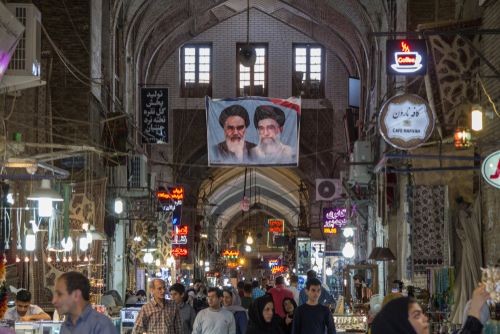The Tehran Summit revealed Russian weaknesses
Since the Ukrainian war, Moscow is inventing new ways to please Tehran and Ankara.
Last February, the 15th round of the Astana negotiations was held in the Russian city of Sochi, which took place with the participation of delegations from the United Nations and the guarantor countries Russia, Iran, Turkey, and the delegations of the Syrian government and the opposition. The Russian Foreign Minister, Sergey Lavrov, discussed with his Syrian counterpart, Faisal Miqdad, the results of the Astana format meetings on Syria in Sochi.
The Astana Process allows Turkish forces to penetrate a distance of five kilometres inside Syria, in pursuit of what Ankara considers terrorists. Both the Astana Process and the Sochi Process are often viewed as nothing but a Russian invention to escape the Geneva International Process.
Osama Danoura, a Syrian political and strategic expert, a former member of the government negotiating delegation in Geneva, Switzerland, said that some people raised questions about the Sochi meetings, their outcomes and their importance to the Syrian crisis. They questioned the extent to which a new political reality could be imposed on Syria, especially in light of the failure of other attempts to do so, most recently the work of the Constitutional Committee.
Russia decided to escape the Geneva Process after intervening militarily in the Syrian war and the American retreat during the era of President Barack Obama. Russia's goal is to marginalise the role of the United Nations in managing negotiations between the Syrian regime and the opposition, and to delay reaching a political settlement. It also wants to bypass the Geneva Process in which the Russian and American foreign ministers, Sergey Lavrov and Hillary Clinton respectively, played a major role in developing the process.
This is troubling the Syrian regime. It is also not happy focusing on Security Council Resolution 2254, which was adopted unanimously on December 18, 2015, and relates to a ceasefire and a political settlement of the situation in Syria. To date, Russia has failed to persuade Damascus, Syria's capital, to implement this resolution. Moreover, Russia has refused to hold its meeting in Geneva as punishment for Switzerland and its position on the Ukraine war.
The main intention of the Astana Process was to reduce the tension in northern Syria under the auspices of the three guarantor countries whose positions differ on the Syrian war.
These three countries are Russia and Iran, which support the Syrian regime for different goals, and Turkey, which is hostile to the Syrian regime and supports the Muslim Brotherhood, Al-Nusra Front, ISIS, and other groups opposed to Damascus.
The Tehran summit is the seventh in the series of meetings among the three leaders. Russia now believes it is in a stronger position than previously in its relations with Turkey and Iran and better able to influence it.
Since Russia's entry into the Syrian war, Russia believes its role has grown stronger. Russian President Vladimir Putin was able to get Iran to retreat to the north and east of the country, so that it is a comfortable distance from Israel. Russia has even shown flexibility in making a deal with the US to remove Iranian forces and associated militias from Syria.
Putin was also able to impose his will on Turkey and punish it after it shot down a Russian plane. However, Turkish President Recep Tayyip Erdogan acquiesced and worked to improve relations with Russia. He bought Russian S-400 missiles despite the American and Turkish anger against him.
Since the Ukrainian war, the Russian position has become weaker, with Putin needing to please Tehran and Ankara too. Putin has acknowledged the increasing influence of Iran in Syria, and denounced the Israeli raids on Iranian forces there, even though Israel informed the Russians of the raids. And Putin, due to hostility to the US, seems to have abandoned supporting the Kurds, since they are backed by US forces in eastern Syria.,
Iran is also close to Turkey. Iran's Supreme Leader Ali Khamenei has asked Russia to stop attacking the Syrian Democratic Forces, which he accuses of terrorism, because "any military attack in northern Syria will harm Turkey, Syria and the entire region can benefit the terrorists" .
Several matters unrelated to the Astana process and related to bilateral relations among the three countries were discussed during the Tehran Summit, held in July 2022.
The result of the Tehran Summit was that some of the tension was reduced. However, there is a need for a political settlement in Syria to end the war and the crisis that led to it, along with the return of refugees and reconstructing the damaged country.
The Jeddah Security and Development Summit, also held in July 2022, brought together the US President and the leaders of the Gulf, Egypt, Jordan and Iraq. Consequently, no one knows how many paths Moscow can invent to serve its role.


Comments